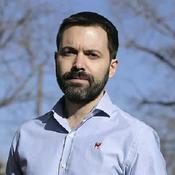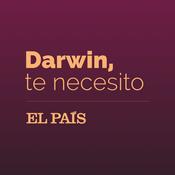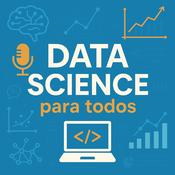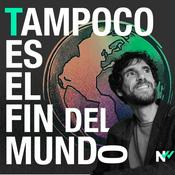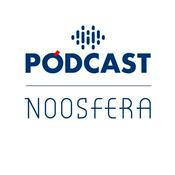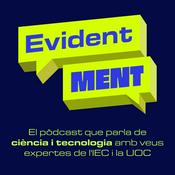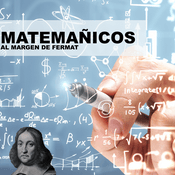298 episodios
- Read the full transcript here.
The Clearer Thinking Podcast listener survey is here!
If you've ever listened to the Clearer Thinking podcast before, we'd love it if you'd take our listener survey so we can learn about your experience and improve the podcast based on your feedback.
Give feedback to help us improve the Clearer Thinking podcast!
What would a global ban on industrial animal agriculture by 2050 actually achieve across welfare public health and climate? Can a phased transition built on price taste and convenience overcome identity, culture, and religion in shaping diets? Which mix of informational, financial, and regulatory policies shifts behavior without backlash? Where is the line between small humane farms that persist and large systems that must end? How do we align consumer values with daily choices when cognitive dissonance makes the topic uncomfortable? When does a little guilt motivate change and when does it harden resistance? What evidence would show that plant-based and cultivated options have reached parity that tips the market? How do we protect farmers and workers while shrinking harmful production at scale? What are the realistic tipping points for social norms around meat in different communities? If the expected suffering avoided each year dwarfs human history how should that reshape priorities?
Jeff Sebo is the Director of the Center for Environmental and Animal Protection, Director of the Center for Mind, Ethics, and Policy, and Co-Director of the Wild Animal Welfare Program at New York University. He is also a Faculty Fellow at the Guarini Center on Environmental, Energy & Land Use Law at the NYU School of Law and an Advisor at the Animals in Context series at NYU Press. His research focuses on moral philosophy, legal philosophy, and philosophy of mind; animal minds, ethics, and policy; AI minds, ethics, and policy; and global health and climate ethics and policy. His books The Moral Circle and Saving Animals, Saving Ourselves are out now.
Links:
WILD Lab
Eleos AI
Jeff's Website
Staff
Spencer Greenberg — Host + Director
Ryan Kessler — Producer + Technical Lead
WeAmplify — Transcriptionists
Igor Scaldini — Marketing Consultant
Music
Broke for Free
Josh Woodward
Lee Rosevere
Quiet Music for Tiny Robots
wowamusic
zapsplat.com
Affiliates
Clearer Thinking
GuidedTrack
Mind Ease
Positly
UpLift
[Read more] - Read the full transcript here.
What is the core public interest case for foreign aid beyond soft power? How should we define safety and prosperity? Why do many voters believe aid is a quarter of the budget when it is a tiny fraction and how does that shape support? How did a political decision to halt awards ripple through real programs and what safeguards failed? What legal and institutional checks should prevent a single administration from impounding funds that Congress appropriated? When government pauses, how can private funders triage the most life saving pieces without letting systems collapse? If an agency is rebuilt, which programs should be protected first and which processes should be redesigned from day one? How do we embed evidence and cost effectiveness at the start of strategy rather than as an afterthought in evaluation? What would it look like to center partner governments in the process so that learning becomes part of their own delivery? How can we avoid a fixation on what is easy to measure while still demanding clear estimates and accountability? What does it mean to meet donors where they are while steering them toward the highest impact use of funds?
Dean Karlan is the Frederic Esser Nemmers Distinguished Professor of Economics and Finance at Northwestern University, and the Founder and former President of Innovations for Poverty Action, a non-profit organization dedicated to discovering and promoting solutions to global poverty problems. Karlan was the Chief Economist at the United States Agency for International Development (USAID) from 2022 until resigning in 2025. Prior to 2022, he was on the Executive Committee of the Board of Directors of the M.I.T. Jameel Poverty Action Lab. In 2015, he co-founded ImpactMatters, a nonprofit dedicated to estimating and rating impact of nonprofit organizations in order to help donors choose good charities and to promote more transparency in the nonprofit sector. His research focuses on microeconomic issues of poverty, typically employing experimental methodologies and behavioral economics insights to examine what works, what does not, and why to address social problems
This episode was recorded live at EA Global: NYC 2025. Many thanks to the EA Global event organizers and staff for recording this conversation.
Links:
EA Global Event Page
Dean's Website
Staff
Spencer Greenberg — Host + Director
Ryan Kessler — Producer + Technical Lead
WeAmplify — Transcriptionists
Igor Scaldini — Marketing Consultant
Music
Broke for Free
Josh Woodward
Lee Rosevere
Quiet Music for Tiny Robots
wowamusic
zapsplat.com
Affiliates
Clearer Thinking
GuidedTrack
Mind Ease
Positly
UpLift
[Read more] - Read the full transcript here.
How can we distinguish “real CBT” from supportive talk - does it include homework, clear goals, or a manualized plan? When therapy “doesn’t work,” is it the modality, the match, or weak training? Are common factors enough once symptoms disrupt daily life? Why does fragmented care push patients to choose meds or therapy by luck of first contact? When are meds a useful boost versus a detour from solving life problems? What’s distinct about DBT—skills, validation, and balancing change with acceptance? How does radical acceptance cut suffering without excusing harm? Which skills travel across diagnoses? How do we prevent therapist burnout and drift from the model? If we want durable gains, should we favor therapies that teach skills we keep after treatment ends?
Shireen Rizvi is a licensed clinical psychologist, board certified in Dialectical Behavior Therapy (DBT) and Cognitive Behavioral Therapy (CBT). She obtained her BA from Wesleyan University and her MS and PhD from the University of Washington.
Links:
Shireen's Videos
Shireen's Books
Staff
Spencer Greenberg — Host + Director
Ryan Kessler — Producer + Technical Lead
WeAmplify — Transcriptionists
Igor Scaldini — Marketing Consultant
Music
Broke for Free
Josh Woodward
Lee Rosevere
Quiet Music for Tiny Robots
wowamusic
zapsplat.com
Affiliates
Clearer Thinking
GuidedTrack
Mind Ease
Positly
UpLift
[Read more] - Read the full transcript here.
Which decisions should be made by election and which by random sampling? Where is competition healthy for choosing leaders, and where must rule-setting be unitary and impartial? What would credible umpires look like - judges, statisticians, pay reviewers - and how do we insulate them from parties? Can citizen juries and standing sampled councils surface red lines, negotiate overlap, and rebuild losers’ consent? Why does professional party culture normalize behavior individuals would reject, and can structured deliberation beat competitive groupthink? How do we measure success for rule-setters - accuracy, legitimacy, or a cooler temperature? When do promotions-as-power contests crowd out service, and could elections without candidates find better leaders? How much polarization is real cleavage versus performance layered over broad agreement, and how do institutions interrupt cosplay turning into violence? What minimum independence and accountability keep sampled bodies honest without drifting into technocracy? Where should problem-solving favor practical wisdom over pure truth-finding - embedding local knowledge alongside trials, models, and metrics?
Nicholas Gruen is an economist and entrepreneur and a commentator on democracy. He chaired the Government 2.0 Taskforce which helped set the Australian Government’s policy to navigate the threats and opportunities of open data and social media. Global Government Forum will shortly begin a (5 part podcast)[https://www.globalgovernmentforum.com/government-transformed-podcast-sharing-the-inside-story-of-how-to-make-public-service-change-happen/] on the Government 2.0 Taskforce fifteen years on. He is Patron of the Australian Digital Alliance, comprising Australia’s libraries, universities, and digital infrastructure providers such as Google and Yahoo.
Links:
Nicholas' YouTube Channel
Nicholas' Substack
Staff
Spencer Greenberg — Host + Director
Ryan Kessler — Producer + Technical Lead
WeAmplify — Transcriptionists
Igor Scaldini — Marketing Consultant
Music
Broke for Free
Josh Woodward
Lee Rosevere
Quiet Music for Tiny Robots
wowamusic
zapsplat.com
Affiliates
Clearer Thinking
GuidedTrack
Mind Ease
Positly
UpLift
[Read more] - Read the full transcript here.
What explains fearing nuclear more than the harms we tolerate from fossil fuels? Can we judge energy risk by evidence rather than headlines? What mix of firm power and renewables actually keeps costs low and lights on? How much should we pay up front for safety, and who decides? Do iconic disasters outweigh statistics in policy debates? What did past build-outs teach us about standardization, permitting, and getting big projects done? Can trust be built without hype or spin? Is government-scale coordination required, or can markets deliver at scale? How should long-lived waste be weighed against climate and air-pollution deaths now? What would a realistic near-term plan look like if we stopped treating tech choices as tribal identity?
Isabelle Boemeke is an author, philanthropist, and entrepreneur who advocates global clean energy. Boemeke is also known as Isodope, the digital persona on a mission to 'make nuclear cool.' She is the Founder and Executive Director of Save Clean Energy and board member of Nature is Nonpartisan and Nuclear Scaling Initiative, where she works at the intersection of policy, culture, and technology to accelerate pragmatic solutions. She delivered a TED Talk that has been viewed nearly 2 million times, led a grassroots campaign that helped delay the closure of California’s Diablo Canyon Power Plant, and is a TIME Magazine “Next Generation Leader”.
Links:
Isabelle's book: Rad Future
Isabelle's TED Talk
Staff
Spencer Greenberg — Host + Director
Ryan Kessler — Producer + Technical Lead
WeAmplify — Transcriptionists
Igor Scaldini — Marketing Consultant
Music
Broke for Free
Josh Woodward
Lee Rosevere
Quiet Music for Tiny Robots
wowamusic
zapsplat.com
Affiliates
Clearer Thinking
GuidedTrack
Mind Ease
Positly
UpLift
[Read more]
Más podcasts de Ciencias
Podcasts a la moda de Ciencias
Acerca de Clearer Thinking with Spencer Greenberg
Clearer Thinking is a podcast about ideas that truly matter. If you enjoy learning about powerful, practical concepts and frameworks, wish you had more deep, intellectual conversations in your life, or are looking for non-BS self-improvement, then we think you'll love this podcast! Each week we invite a brilliant guest to bring four important ideas to discuss for an in-depth conversation. Topics include psychology, society, behavior change, philosophy, science, artificial intelligence, math, economics, self-help, mental health, and technology. We focus on ideas that can be applied right now to make your life better or to help you better understand yourself and the world, aiming to teach you the best mental tools to enhance your learning, self-improvement efforts, and decision-making. • We take on important, thorny questions like: • What's the best way to help a friend or loved one going through a difficult time? How can we make our worldviews more accurate? How can we hone the accuracy of our thinking? What are the advantages of using our "gut" to make decisions? And when should we expect careful, analytical reflection to be more effective? Why do societies sometimes collapse? And what can we do to reduce the chance that ours collapses? Why is the world today so much worse than it could be? And what can we do to make it better? What are the good and bad parts of tradition? And are there more meaningful and ethical ways of carrying out important rituals, such as honoring the dead? How can we move beyond zero-sum, adversarial negotiations and create more positive-sum interactions?
Sitio web del podcastEscucha Clearer Thinking with Spencer Greenberg, La Brújula de la Ciencia y muchos más podcasts de todo el mundo con la aplicación de radio.es
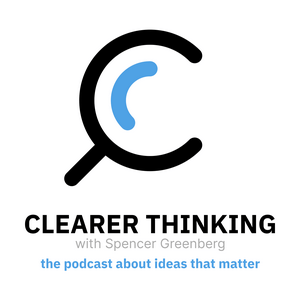
Descarga la app gratuita: radio.es
- Añadir radios y podcasts a favoritos
- Transmisión por Wi-Fi y Bluetooth
- Carplay & Android Auto compatible
- Muchas otras funciones de la app
Descarga la app gratuita: radio.es
- Añadir radios y podcasts a favoritos
- Transmisión por Wi-Fi y Bluetooth
- Carplay & Android Auto compatible
- Muchas otras funciones de la app


Clearer Thinking with Spencer Greenberg
Escanea el código,
Descarga la app,
Escucha.
Descarga la app,
Escucha.








